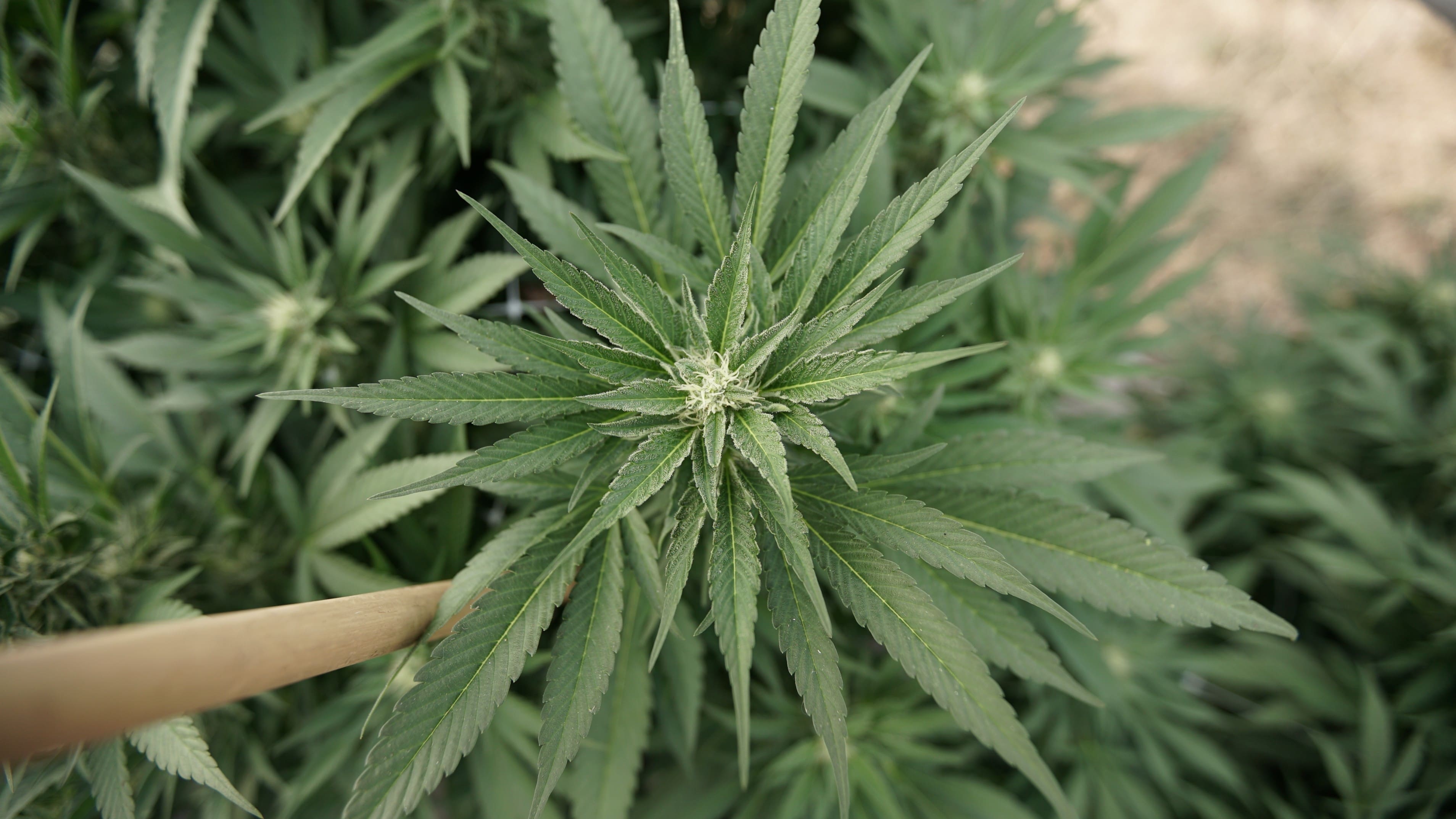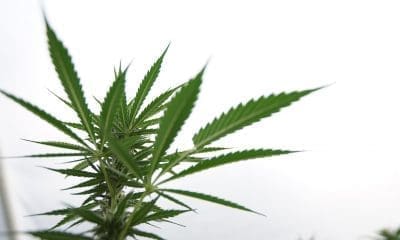Politics
Veterans Groups Battle Medical Marijuana Ban On Capitol Hill

Several of the U.S.’s most prominent veterans advocacy organizations are stepping up the push for medical marijuana.
During two hearings on Capitol Hill this week, leaders of veterans service groups called on Congress to force the U.S. Department of Veterans Affairs (VA) to do more to provide access to and conduct research on medical cannabis.
“This is the year that our views will be heard on cannabis,” Melissa Bryant, chief policy officer for Iraq and Afghanistan Veterans of America, said in front of a joint hearing of the House and Senate Veterans’ Affairs Committees on Tuesday.
“Veterans consistently and passionately have communicated that cannabis offers effective help in tackling some of the most pressing injuries we face when returning from war,” she added in written testimony. “Policies are outdated, research is lacking, and stigma persists. In 2018, IAVA members will set out to change that and launch a national conversation underscoring the need for bipartisan, data-based, common-sense solutions that can bring relief to millions, save taxpayers billions and create thousands of jobs for veterans nationwide. Those solutions must include the approval of medical cannabis for every veteran in America who needs it.”
Veterans of Foreign Wars is on board as well.
“VA mental health care is making a positive impact on those who use it, but there is still room for improvement,” Keith Harman, the national commander in chief for VFW, said in testimony for a separate hearing before the panels on Wednesday. “The VFW urges Congress and VA to conduct a federally-funded study with veteran participants for medical cannabis. This study should have a focus on participants who have PTSD, but should most definitely include veteran participants who are VA patients for chronic pain and oncology.”
The American Legion the nation’s largest military veterans advocacy group, prominently included a call for medical marijuana reform at the VA in an appearance before the committees last month.
American Legion Pushes Congress On Medical Marijuana At Hearing
“The federal government continues to list cannabis as a Schedule I drug – the most addictive and dangerous – although its addiction rates are lower than alcohol, and the less-restrictive Schedule II classification applies to opioids, which kill 91 Americans every day,” American Legion National Commander Denise H. Rohan said. “By continuing to consider accumulating evidence of the efficacy of cannabis-based medicines, the federal schedule fails patients fighting debilitating conditions, including PTSD and potentially lethal opioid addiction.”
Lawmakers also spoke up in support of increased access to cannabis this week.
“A lot of [veterans] have recently been telling me that they don’t want opioids,” Congressman Lou Correa (D-CA) said during the Wednesday hearing. “They don’t want those drugs in their bodies, and they prefer medical cannabis.”
While Veterans Affairs Sec. David Shulkin has consistently maintained that the VA is barred by federal law from recommending medical cannabis or even participating in research on the drug, the department quietly updated its website last month to acknowledge that it “can look at marijuana as an option for treating Veterans.”
Advocates have pointed out that there is no overarching federal law blocking the VA from changing its own internal policies on marijuana.
In her written testimony for this week’s hearing, Iraq and Afghanistan Veterans of America’s Bryant slammed VA for not letting veterans access medical cannabis recommendations from the doctors who know them best. The group also supports the continuance of far-reaching protections that prevent the Justice Department from interfering with the implementation of state medical marijuana laws:
“However, despite strong support from across all geographies, generations and political backgrounds of veterans, progress on this issue with the VA has been slow and incremental–and lags behind the needs of veterans and the changing reality of state-level laws. In late 2017, the Veterans Health Administration issued a policy change which urged patients to discuss medical marijuana use with their doctors. The shift allows doctors and patients to determine what, if any, effect cannabis use might have on treatment plans. This policy change alleviates previous concern that admitting to cannabis use could jeopardize VA benefits, a policy recommendation noted in IAVA’s Policy Agenda. But VA physicians still cannot refer patients to legally sanctioned state medical cannabis programs because of the federal prohibition. Moreover, patients are not allowed to have any cannabis on VA property, even if it is medically prescribed to them and the state they are living in allows it. And VA employees are still barred from using any form of cannabis, including medical cannabis, while roughly one-third of VA employees are veterans and may want access to cannabis as a treatment option.
“Further, in opposition to strong and rising popular opinion across the veterans community, the VA Secretary announced in early 2018 that the VA will not conduct research into whether medical cannabis could help veterans suffering from PTSD and chronic pain. This is despite protest from many in the VSO community who posit medical cannabis could serve as an alternative to opioids and antidepressants…
“IAVA will join select VSO partners in 2018 to amplify the voices of our collective members and urge Congress and the VA to pass and implement common sense legislation and policy sanctioning the use of medical cannabis by veterans. We will push to close the loopholes in VA policy which inhibit the discussion of cannabis usage between veterans and VA clinicians; current VA medical cannabis policy should be updated to allow for VA clinicians to provide recommendations and opinions to patients regarding medical cannabis programs. We urge the VA to conduct research into the use of medical cannabis as a treatment option for chronic pain and mental health injuries. IAVA also calls on Congress to pass legislation to reclassify marijuana as a Schedule III drug from a Schedule I drug. Finally, IAVA calls for support to Senate FY 2018 Commerce/Justice/Science Appropriations (S. 1662/Sect. 538) language that prohibits the Department of Justice from preventing implementation of state cannabis access laws, including for medical purposes.”
Written testimony from VFW’s Harman also detailed the benefits of cannabis and called for more research:
“In the past several years PTSD and TBI have been thrust into the forefront of the medical community and general public in large part due to suicides and overmedication of veterans. Medical cannabis is currently legal in 30 states and the District of Columbia. Many of these states have conducted research for mental health, chronic pain and oncology at the state level. States that have legalized medical cannabis have also seen a 15-35 percent decrease in opioid overdose and abuse. There is currently substantial evidence from a comprehensive study by the National Academy of Sciences and the National Academic Press which concludes cannabinoids are effective for treating chronic pain, chemotherapy-induced nausea and vomiting, sleep disturbances related to obstructive sleep apnea, multiple sclerosis spasticity symptoms, and fibromyalgia –– all of which are prevalent in the veteran population.
“In April 2016, the Drug Enforcement Administration approved a study on the effect of medical marijuana on PTSD, which was intended to be the first federally funded, randomized and controlled research for PTSD in the United States. That study has not gone as planned for multiple reasons, however, such as restrictions placed on possible study participants and unusable marijuana shipments from the only federally-approved grower in the United States.”
The House and Senate have both passed amendments in recent years to allow VA doctors to issue medical cannabis recommendations to veterans in states where it is legal, but the measures have not been enacted into law.
Photo courtesy of Chris Wallis // Side Pocket Images.
















